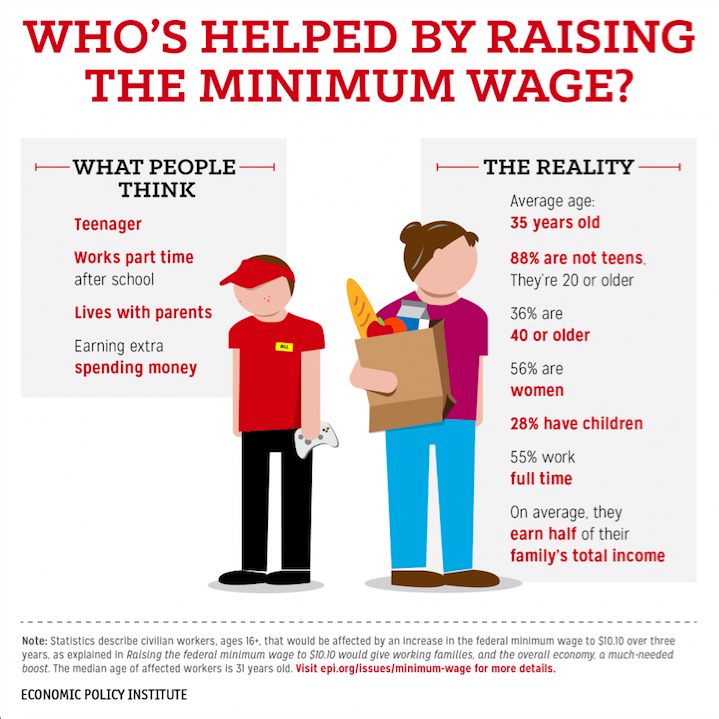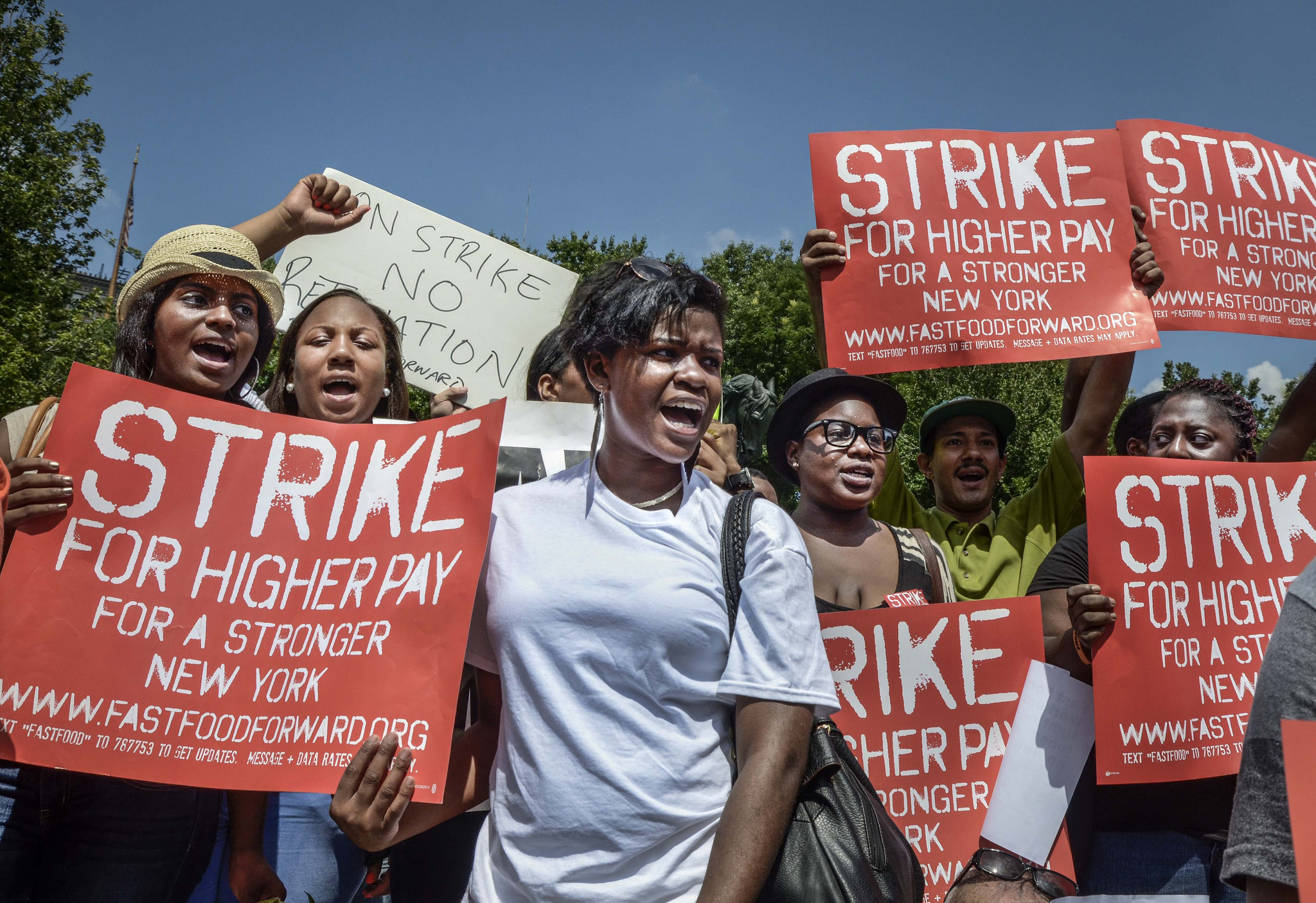What the Average Minimum Wage Worker Really Looks Like

By:
When people imagine someone who would benefit from an increase in minimum wage, they probably imagine a teenager working part time; think Jesse Eisenberg's character "James" in Adventureland.
However, according to the Economic Policy Institute (EPI) and the Department of Labor, there's little truth to this stereotype. The average person who stands to benefit from an increase in the federal minimum wage is much older, works much longer hours.
The Bureau of Labor Statistics found that workers under the age of 25 made up about half of the workforce earning minimum wage. However, when you change the criteria slightly and ask who would get a raise if the federal minimum wage were boosted just $10.10 per hour, the figure supported by President Barack Obama, the picture changes dramatically.
 Economic Policy Institute - epi.org
Economic Policy Institute - epi.org
According to the EPI, the average person who has the most to gain from a minimum wage hike is not a teenager, but on average 35 years old. Eighty-eight percent of these workers are at least 20 years old, and 40 percent are at least 40 years old. These workers do not live with their parents, in fact, 28 percent of them have children of their own. The majority (55 percent) are working full time to support their households. Many of these workers are college educated, almost half of them (44 percent) have some amount of college education. The majority (56 percent) of these people are women. Women of color— who make up 23 percent of people earning minimum wage even though they comprise only 16 percent of the workforce —would benefit disproportionately from an increase in the federal minimum wage.
 Flickr / Annette Bernhardt - flickr.com
Flickr / Annette Bernhardt - flickr.com
If we look at a hypothetical increase of the federal minimum wage to $12 an hour, the level endorsed by Hillary Clinton during her presidential run, these discrepancies only become clearer. According to the EPI, more people over the age of 55 would benefit than people under the age of 20 — 15.3 percent to 10.7 percent out of all affected workers, respectively. Furthermore more than one-third of all black and Hispanic workers would receive a raise.
Of course, this is not the only myth about minimum wage. According to the U.S. Department of Labor, raising the minimum wage will not hurt the economy, in fact, most small business owners actually support a raise in the minimum wage and many economists argue that it will not destroy jobs. As ATTN: recently reported, the Seattle metropolitan area's unemployment numbers have only continued to dip even after the city became the earliest adopter of a $15 minimum wage.
So when we talk about who would benefit from an increase in minimum wage, we are not talking about a high school student, looking for extra cash to spend at Chipotle, we are probably talking about a woman, possibly college educated, earning money for her household and children.
